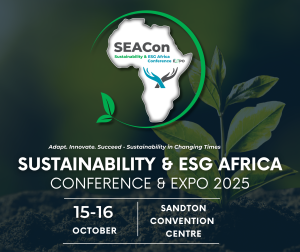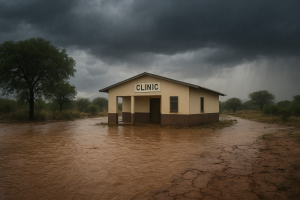Inventor of Africa’s first biodegradable bottle calls for urgent action on microplastic crisis
4 min read
According to a 2023 UNEP report, the world produces 430 million tonnes of plastic annually, with 280 million tonnes discarded after just one use.
- Only 9% of discarded plastic is recycled, with more than 22% mismanaged, primarily through open burning and uncontrolled dumping.
- In South Africa, approximately 120 million tons of general waste is generated each year, straining municipal capacity to manage it.
- Fortis X is the only company in Africa producing bottles and other packaging made solely from plants, which fully biodegrade within 2 months.
Recent studies reveal alarming statistics: over 80% of South African freshwater sources contain microplastic contamination, with concentrations reaching up to 10,000 particles per cubic meter in some urban rivers. Coastal surveys show microplastics in over 90% of sampled beach sediments, threatening marine ecosystems and infiltrating the seafood chain.[1]
These findings strike at the heart of what clean-up campaigns stand for: Keeping plastics and waste out of natural ecosystems, protecting marine life, and driving accountability in how we manage waste.
A public health crisis
Microplastics are not just an environmental nuisance – they pose real risks to human health. Globally, individuals are estimated to consume between 11,845 and 193,200 microplastic particles annually[2], with drinking water identified as the primary source. The toxicity of microplastics stems from both their inherent properties and their ability to interact with other pollutants, such as heavy metals.
Scientific research increasingly links microplastic ingestion and inhalation to a range of health issues:
- Chemical exposure: Toxic additives like phthalates, BPA, and heavy metals leach into food and beverages, disrupting endocrine functions and increasing cancer risks.
- Immune system impact: Microplastics can cause inflammation and oxidative stress, impairing immune responses.
- Bioaccumulation: Microplastics accumulate in the human body over time, with recent findings detecting them in blood, lungs, and even placentas.
- Food safety: In South Africa, where bottled water and packaged beverages are widely consumed, microplastic contamination directly threatens consumer health.
“These tiny particles are increasingly being found in drinking water, food, and even the air -raising serious questions about long-term health impacts,” explains Nicholas De Beer, Director of Fortis X. “Given these risks, reducing exposure to microplastics is a critical public health priority.”
The Fortis X solution
As volunteers gather on beaches and in communities across South Africa do their part, Fortis X is addressing the problem at its source. By producing biodegradable bottles and closures made entirely from sugarcane-derived plant materials, Fortis X eliminates one of the biggest drivers of microplastic pollution: conventional plastic packaging.
“Our bottles biodegrade completely within just two months when placed in compost, leaving no harmful residues behind. Because they break down naturally and fully into organic matter, they never fragment into smaller plastic pieces like conventional plastics do,” says De Beer.
Unlike traditional plastics, Fortis X’s materials biodegrade fully under composting conditions, preventing environmental accumulation and fragmentation into microplastics. Additionally, they are produced without additives or coatings known to shed microplastics, ensuring a clean, plastic-free packaging solution.
Why this matters now
By replacing fossil-fuel-based plastics with fully compostable, plant-based alternatives, Fortis X is not only protecting consumer health but also championing environmental sustainability:
- Reduces plastic pollution in South African waterways and soils by eliminating the source of persistent plastic waste.
- Supports circular economy principles by returning nutrients to the earth rather than polluting it.
- Safeguards marine and terrestrial ecosystems from the devastating effects of microplastic contamination.
- Reduces reliance on fossil fuels, lowering the carbon footprint and supporting South Africa’s sustainability goals.
For more information, visit https://fortisx.com
[1] https://www.oecd.org/en/about/news/press-releases/2022/02/plastic-pollution-is-growing-relentlessly-as-waste-management-and-recycling-fall-short.html
[2]https://www.frontiersin.org/journals/environmental-science/articles/10.3389/fenvs.2025.1606332/full
Image credit: Freepik




